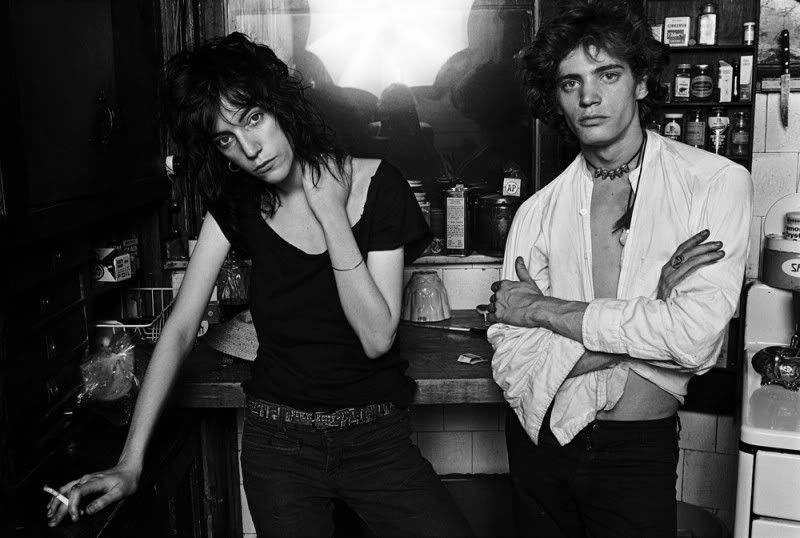
Just Kids is not a rock biography in the traditional sense; it's a manifesto on the birth of creativity, and how it emerges simultaneously with discovery of the self. This is not the Patti Smith of legendary Saturday Night Live satire; this is not the angry woman who essentially invented punk rock; the Patti Smith of Just Kids is a wide-eyed androgyne who escaped the backwaters to the big city, and faced every challenge with wit and grace.
Smith details the symbiotic and often tense relationship between herself, then-lover and future photography legend Robert Mapplethorpe, and the ever-morphing mystery of New York City. Apart from a pair of journeys to Europe to find the soul of Arthur Rimbauld, Smith remains, transfixed, in the center of the cultural whirlpool of the Chelsea Hotel, visited by playwrights, Janis Joplin, Jimi Hendrix, and countless other dreamers, not to mention the burgeoning cult of Mapplethorpe. Shirley Clarke stopped in, Diane Arbus became the class historian.The only thing separating Smith from the rest of them? She was sober at the time, and she lived to tell the tale.
Everything about New York City was beautiful to her, even the parts that so many artists and aesthetes profess to disdain:
"The skyscrapers were beautiful. They did not seem like mere corporate shells. They were monuments to the arrogant yet philanthropic spirit of America."
Even in the most horrible, dingy and darkest corners of NYC, she finds poetry. Tell me that you are not at least marginally interested in visiting a rundown cafe she describes as "the Edward Hopper version of Dunkin' Donuts."
The picture we get of Patti Smith is someone who is impossibly erudite and incredibly well-read; did you know she worked in the trade of rare and valuable books for Scribner's before becoming one of the world's most legendary rock stars? Again and again, she provides little bits of cultural commentary that make me want to know her better, to converse with her, to find a way, against all odds, to befriend her:
"I didn't feel for Warhol the way Robert did. His work reflected a culture I wanted to avoid. I hated the soup and felt little for the can. I preferred an artist who transformed his time, not mirrored it."
That last statement eloquently expresses why I simply cannot connect with certain art, particularly Jonathan Franzen's Freedom (which I wrote about at length). Like me, Smith identifies with the 'mutinous spirit' of Zelda Fitzgerald. Could it be that I can be her? Smith didn't find success until she was 27; I am 26 now, there is still time.
I always felt that her music was something I ought to like rather than something I actually enjoyed. But now, understanding the context and the courage involved in creating her work, it's impossible not to marvel at Horses or its successors. And so a petite obsession is borne.

